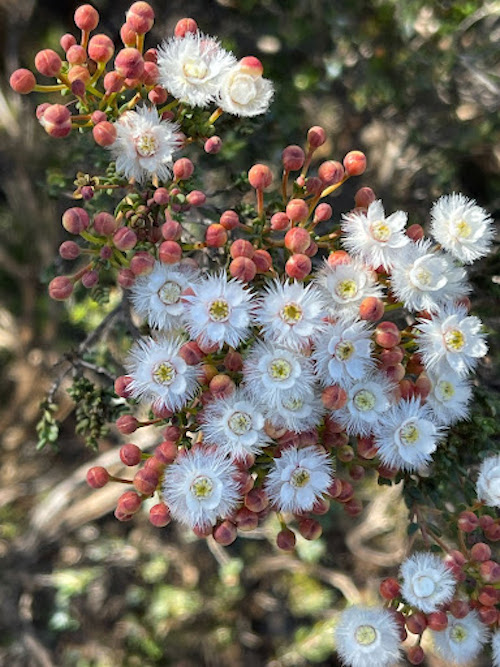by Rodney Marsh
“I thank you God for the gift of life, a wondrous gift so freely given”
“Open my heart and fill my life with tenderness.”
In her Sept 20 blog Christine introduced a “season of gratitude” by sharing her new mantra “I thank you God for the gift of life, a wondrous gift so freely given”. Christine said, “each morning as I sit in my sacred space with my cup of tea in my hand, I recite these words and relish the thoughts that come to me. I am amazed at what has welled up from the centre of my being. God has placed so many gratitudes within me that need to be expressed.” Here I wish to look at the use of a ‘prayer word(s)’ or mantra.
The Sanskrit word “mantra” combines two words: ‘mind’ and ‘tool’. This reveals that a word or saying can be used as a tool to concentrate our scattered, distracted, erratic minds and bring our body, heart and mind into union and communion. Words, like those Christine recited, are learned by heart then experienced in the heart. Like poetry. Words, used as a means of communication, necessarily have a shared, defined and limited meaning; but when words begin to live in our heart and not just our head communication becomes communion. When one heart communes with another the words live and grow to have infinite depth and meaning. Prayer words, said with love and repeated, descend from the head to the heart where they live and grow. From there the Spirit of Jesus will begin a lifelong transformation.
I used one such mantra when I was, in a school context, working with 12-18-year-olds. In 2019, I used a daily Middle and Senior Schools’ class reflection which combined a reading from Luke’s Gospel with stillness and silence using this mantra/affirmation/prayer: “Open my heart and fill my life with tenderness.”
The origin of this mantra is to be found in Dr. Kent Hoffman’s TEDx talk (here) about his work with homeless teenage girls, aged 13-15. These girls had given birth and wanted to be ‘good’ mums, but were struggling. They had, understandably, a poor self-image. They could not see themselves as loved or loveable and it was difficult for them to tolerate, let alone meet, the demands of a baby. These girls are, in reality, like us all – deeply significant, loved and valued persons. They did not, however, feel significant or valued. Being valued was not part of their experience of life. Others told them “you are worthless/a failure” etc. So, their own minds constantly repeated an internal mantra: “You are worthless.” It was this mantra that descended from their heads to their hearts and began to yield its bitter fruit in their lives.
One strategy Dr. Hoffman recommended was a Daily Presence Practice: “Upon awakening, say something like: “Deeper than any happiness or suffering I will experience this day, I am held with Tenderness” (You do not have to currently believe this).” I shared and discussed Dr. Hoffman’s talk with the senior students and it quickly became clear that there exists an urgent need for this Holding Tenderness to be experienced in their frenetic, fragmented lives too. Indeed, we all need “to know ourselves to be lovable and allow ourselves to be loved” (John Main) and a mantra is one way of discovering the communion of prayer in which we experience love. This is not new knowledge, but it is urgent that this mode of prayer be taught by the church in the world.
It was Dr. Hoffman’s assurance that “you do not have to currently believe this” that attracted me. Why don’t you have to believe it? The reason must be that, whether you believe it or not, the reality is that you are held with tenderness. Tenderness underlies and infuses all reality. The feeling “I am worthless” is unreality. “I am loved” is reality, and, “unreality has no power over reality” (John Main). The good news is that the deep-down tenderness that is at the centre of all reality is also at the heart of each person’s life.
It is faith that enables us to know that we are always held with tenderness. It is prayer that enables us to know tenderness in our experience and a ‘mantra’ prayer such as the ones above is one way to begin to allow that tenderness to hold us and thanksgiving to rise within us. However, a mantra is not magic nor are the words magic. Jesus said that if we seek to save our life we will lose it and if the ‘words’ of the mantra are said with the intent to wrest something from God (eg; a feeling of thankfulness or tenderness) for our advantage a mantra will turn to dust. However, if, when saying a mantra, we give up our ‘life’ (as Jesus said) then a mantra enables us to discover our life in Jesus, who is already praying in our heart. A mantra reminds us that to experience thanksgiving, tenderness or any other gift from God, we must stop doing and start being who we are in God’s wonderful world.
Remember – God ALWAYS hears the prayer of a sincere heart and the Holy Spirit only needs us to open the door to our hearts just a crack for her to enter and begin her loving transformation.
Sit still, breathe quietly and say under your breath:
“I thank you God for the gift of life, a wondrous gift so freely given”
“Open my heart and fill my life with tenderness.”
 Perhaps more now than ever, Awe and Wonder are important practices for a thriving life. Follow along with Christine in her latest book as she explores what childlike characteristics shape us into the people God intends us to be. Be encouraged to develop fresh spiritual practices that engage all our senses and help us to live a new kind of spiritual life that embraces the wonder and joy that God intends for us.
Perhaps more now than ever, Awe and Wonder are important practices for a thriving life. Follow along with Christine in her latest book as she explores what childlike characteristics shape us into the people God intends us to be. Be encouraged to develop fresh spiritual practices that engage all our senses and help us to live a new kind of spiritual life that embraces the wonder and joy that God intends for us.
“Can you imagine a God who dances with shouts of joy, laughs when you laugh, loves to play, enjoys life, and invites us to join the fun?”

